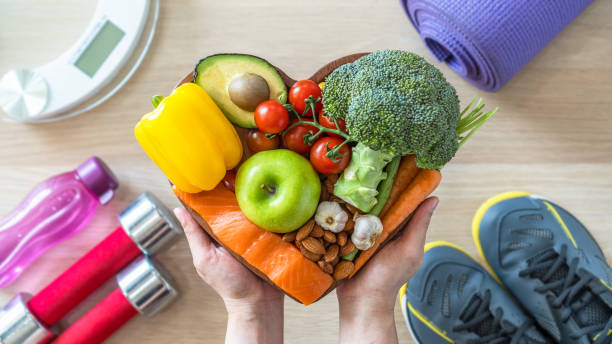Introduction
Sports nutrition is a critical component of athletic performance and overall health for athletes. Proper nutrition can significantly enhance physical abilities, aid in recovery, and improve overall well-being. This article delves into the importance of sports nutrition, key nutrients needed for athletic success, and how to create an effective nutrition plan for athletes.
Understanding Sports Nutrition
Definition
Sports nutrition involves the study and practice of nutrition and diet as it relates to athletic performance. It encompasses various dietary strategies to enhance physical performance, speed up recovery, and promote overall health.
Importance of Sports Nutrition
Proper sports nutrition ensures that athletes receive the necessary nutrients to fuel their bodies, improve endurance, and enhance strength. It also helps in preventing injuries, reducing recovery time, and maintaining overall health.
Key Nutrients in Sports Nutrition
Carbohydrates
Carbohydrates are the primary energy source for athletes. They provide the necessary fuel for high-intensity and endurance activities. Consuming adequate carbohydrates before, during, and after exercise is crucial for maintaining energy levels and optimizing performance.
Proteins
Proteins are essential for muscle repair and growth. They provide the building blocks needed to repair muscle tissues damaged during intense physical activity. Including high-quality protein sources in an athlete’s diet helps in muscle recovery and growth.
Fats
Healthy fats are important for energy production and the absorption of fat-soluble vitamins. They also play a role in reducing inflammation and supporting overall health. Athletes should include sources of healthy fats, such as avocados, nuts, and olive oil, in their diet.
Vitamins and Minerals
Vitamins and minerals are crucial for various bodily functions, including energy production, immune function, and bone health. Athletes need to ensure they consume a balanced diet rich in fruits, vegetables, and whole grains to meet their micronutrient needs.
Hydration
Proper hydration is essential for maintaining fluid balance, regulating body temperature, and preventing dehydration. Athletes should drink water regularly and consider electrolyte drinks during prolonged or intense physical activities.
Creating an Effective Sports Nutrition Plan
Pre-Workout Sports Nutrition
Eating a balanced meal rich in carbohydrates and moderate in protein 2-3 hours before exercise helps in fueling the body for the upcoming activity. Including easily digestible snacks like fruits or yogurt closer to the workout time can provide additional energy.
During Workout Sports Nutrition
For prolonged activities lasting more than an hour, consuming carbohydrates during exercise can help sustain energy levels. Sports drinks, gels, or energy bars are convenient options to maintain performance.
Post-Workout Sports Nutrition
Post-workout nutrition focuses on replenishing glycogen stores, repairing muscle tissues, and rehydrating the body. Consuming a combination of carbohydrates and protein within 30 minutes after exercise is ideal for recovery.
Meal Timing and Frequency
Athletes should eat small, balanced meals every 3-4 hours to maintain energy levels and support metabolism. Consistent fueling helps in preventing energy crashes and maintaining performance throughout the day.
Common Challenges in Sports Nutrition
Balancing Macronutrients
Finding the right balance of carbohydrates, proteins, and fats can be challenging. Athletes need a personalized approach to meet their unique energy and nutritional needs based on their sport, training intensity, and individual goals.
Managing Dietary Restrictions
Athletes with dietary restrictions or preferences (e.g., vegetarian, vegan, gluten-free) need to find alternative sources of essential nutrients. Consulting with a sports nutritionist can help in creating a balanced diet that meets all nutritional requirements.
Avoiding Supplements Pitfalls
While supplements can be beneficial, it’s important to choose high-quality products and avoid those with harmful additives. Athletes should prioritize getting nutrients from whole foods and use supplements only when necessary and under professional guidance.
Conclusion
Sports nutrition plays a vital role in enhancing athletic performance, supporting recovery, and promoting overall health. By understanding the importance of nutrition and incorporating the right balance of key nutrients, athletes can achieve their goals and maintain optimal health.
FAQs
1. Why is sports nutrition important for athletes?
Sports nutrition is important because it provides the necessary nutrients to fuel the body, improve performance, and support recovery. It helps athletes maintain energy levels, build muscle, and prevent injuries.
2. What are the key nutrients for athletes?
The key nutrients for athletes include carbohydrates, proteins, fats, vitamins, and minerals. Each of these plays a vital role in energy production, muscle repair, and overall health.
3. How can athletes stay hydrated?
Athletes can stay hydrated by drinking water regularly and consuming electrolyte drinks during prolonged or intense physical activities. Proper hydration helps maintain fluid balance and prevents dehydration.
4. What should athletes eat before a workout?
Before a workout, athletes should eat a balanced meal rich in carbohydrates and moderate in protein about 2-3 hours before exercise. Including easily digestible snacks like fruits or yogurt closer to the workout time can provide additional energy.
5. Are supplements necessary for athletes?
While supplements can be beneficial, they are not always necessary. Athletes should prioritize getting nutrients from whole foods and use supplements only when needed and under professional guidance.

